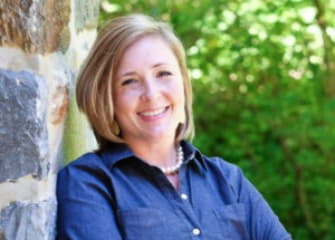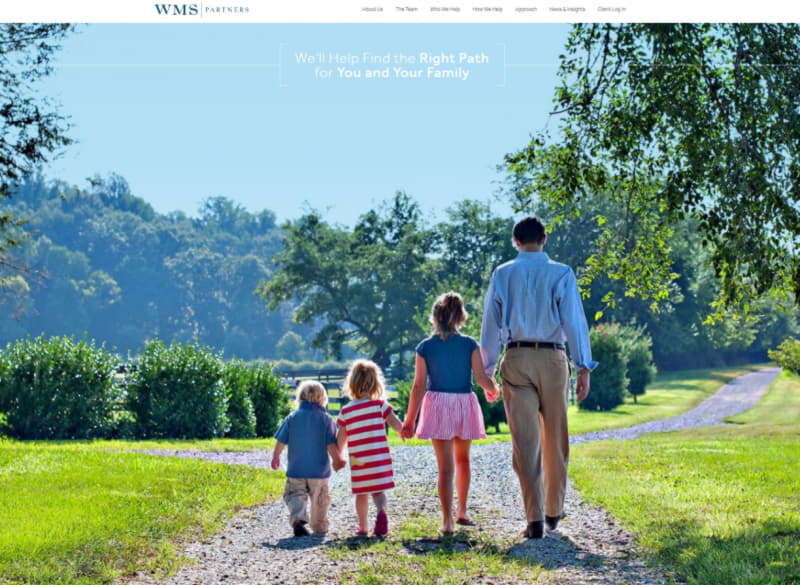
Ginger Mihalik
Click here for Part I & Part II
Baltimore Chesapeake Bay Outward Bound School (BCBOBS) provides outdoor character education programs to youth and adults using an experiential learning model. The Outward Bound network of schools includes 10 other locations in the United States and stretches into 33 countries across the globe. BCBOBS has been operating in the Chesapeake Region via their campus in Baltimore’s Leakin park since 1986.

In 2016, under the leadership of Executive Director
Ginger Mihalik, the school served 6,827 students through a variety of different programs. These include everything from one-day programs on the newly expanded high ropes course to wilderness expeditions with schools. BCBOBS’s primary focus is working directly with schools to be their provider of character education, anoften lacking part of the educational curriculum in schools today. They have successfully done so through the development of the Character Curriculum, the in-classroom component of their experiential learning model that accompanies the Outward Bound expedition for increased skill transference in students.
In addition, BCBOBS runs a variety of community based programming such as expeditions for veterans and grieving teens organizations in Baltimore. The most notable of their community programs is the Police Youth Challenge (PYC) which began in 2008, but expanded to include the entire active duty police force in January 2016. Since then, over 3,000 officers and students from Baltimore City have come together in Leakin Park to shift perceptions, build trust and forge meaningful connections. Tools developed during a 3-year research project with Johns Hopkins University Bloomberg School of Public Health has given the program data that proves the program’s efficacy. It has shown that 86% of Officers feel that they have the skills to positively interact with youth after the PYC, and 23% more youth find Officers trustworthy after the program.
More information about the organization, it’s programs, impact, and how you can get involved can be found at www.outwardboundbaltimore.org.
AL BERKELEY: We had a major donor who helped you expand that. Falk a little bit about that.
GINGER MIHALIK: The unrest happened, and immediately we thought, “We have something here. We have a way that we can help.” We had a wonderful donor who prefers to stay anonymous, but he’s an amazing man, who came out and saw the program and was really truly moved. He made a personal commitment to scale the entire program up from just the Academy to the full police force. That meant almost 6,000 participants, because the way this program operates is it’s a one-to-one ratio. We were looking at 3,000 officers paired with 3,000 students.
AL BERKELEY: Who picks the students?
GINGER MIHALIK: We developed a strategy with the Department of Juvenile Services—DJS—with the mayor’s office.
AL BERKELEY: Which is a state-level service?
GINGER MIHALIK: That’s a state-level service, yeah. Sam Abed is the secretary there and he’s been an amazing supporter. We developed a big strategy with them. We sat down and we said, “How do we do this? How do we pick the schools? How do we target?” We had this massive spreadsheet that we used. We looked at crime data, education statistics. We were looking at “Where are violent crimes happening? Where are the highest dropout rates, suspensions, expulsions? Where are those happening?”
It’s created a weighted scale by neighborhood. If you look at our chart, we have our green neighborhoods, which are going to be your typically your worst neighborhoods. Those are the ones that are struggling the most. Green means “go”—that’s where we’re headed first—yellow are the ones that are kind of in between, and then red is going to be honestly your Roland Park, Mt. Washington—where the data shows the neighborhood is just not as rough. We pull from all of those areas, but we focus heavily on green, a little bit on yellow, and very little on red.
AL BERKELEY: You cooperate with a number of other nonprofits. Talk a little bit about that.
GINGER MIHALIK: We have other nonprofits that we’ve been coordinating with. It’s one of the things that I have been beating a drum about for a long time. I feel like it’s really, really important that we don’t do this in a silo. We’re really good at this now. We have spent a long time getting good at it, and we have the results to prove it, but there are other organizations that are doing really important work with the police too. And I think there are some very interesting ways that we could all dovetail with each other, so that as people are leaving our program they’re getting fed into another program that helps maintain the relationships that are being developed. We’ve done some trial-basis things with a couple of different nonprofits, but the mayor's office, as well as some of the other state agencies, have been very interested in helping us get this off the ground and get it going. Right now, we’re in the process of building a collaboration and trying to build this coalition that would all work together.
AL BERKELEY: Are there some other nonprofits or are there some people in the community that we ought to highlight?
GINGER MIHALIK: Some people that have been really interested in the same work that we are are groups like Mediation Maryland and the Department of Juvenile Services. The state's attorney's office has really dove in deep and spent some time talking with us about this. Cal Ripken's foundation has a program called Badges to Baseball. There’s a handful of groups that all feel the same way. I mean, this is a problem around Baltimore, period; if you talk to any nonprofit leader they’re going to tell you, “There’s a lot of overlap. We all ought to be talking together. If we could coordinate the work, we could get so much more done.”
This is our first attempt to say, “Let’s try to do it. Let’s actually put our money where our mouth is. Let’s all sit down at the table.” And we sat down at this table, and spent some time talking about what that could look like. Well, you know, talk is cheap, so we’ve got to make it happen. We’re looking to funders. We’ve actually got a couple of requests out right now to be able to fund a collaboration because, at the end of the day, all of us need help to get this done.
AL BERKELEY: Talk a little bit about how you have constructed your board of directors and how you got some very interesting, very able people—Luke Cooper, people like that.
GINGER MIHALIK: Our board comes to us from all over the place. There are some board members that have been here before I got here, and there are some that we’ve recruited more recently. We’re in this effort to make sure that we’re bringing new blood in, like every nonprofit is, and I think that we have a really unique board. I say this over and over to anybody who will listen: I have one of the best boards ever. We have a very collegial board. Everybody is always willing to roll up their sleeves and get into the work. And I think that new board members coming in really like that. It’s not “we’re just going to sit around and yawn for two hours while Ginger talks to us.” They’re all engaged in these conversations.
And then the work that we’re doing is really meaningful to a lot of people. Luke Cooper became involved because of a time that he actually came out here with an organization that he was with. I presented about our police program to a group that he was a part of, we sat down and chatted afterwards, and I think it just really got him excited about where this police program really could go. We have a few other new board members—John Avert being one, who’s young and enthusiastic and active, the same kind of thing: I think he sees the value of what Outward Bound can do for this community.
Connect with Ginger on LinkedIn
Sponsored by:
Founded in 1993, WMS Partners is the only independent multi-family office in the Baltimore area that isn’t associated with a brokerage firm, bank or trust company. Our team of approximately 50 professionals and 14 owners spanning three generations assists in the direction of our client’s financial goals and objectives and oversees in excess of $3 billion in assets.
As our client’s advocate and central point for their financial affairs, we work pro-actively with service providers, including accountants, attorneys, consultants, insurance professionals and philanthropic advisors. We are large enough that we provide exposure to many unique ideas and strategies in the investment, estate, tax, financial advisory and risk management arena; but small enough to provide discreet, pro-active individualized guidance.


Edwin Warfield, CEO of citybizlist, conducts the CEO Interviews.
If you're interested in reaching CEOs, please contact edwin.warfield@citybuzz.co
Connect on LinkedIn



































